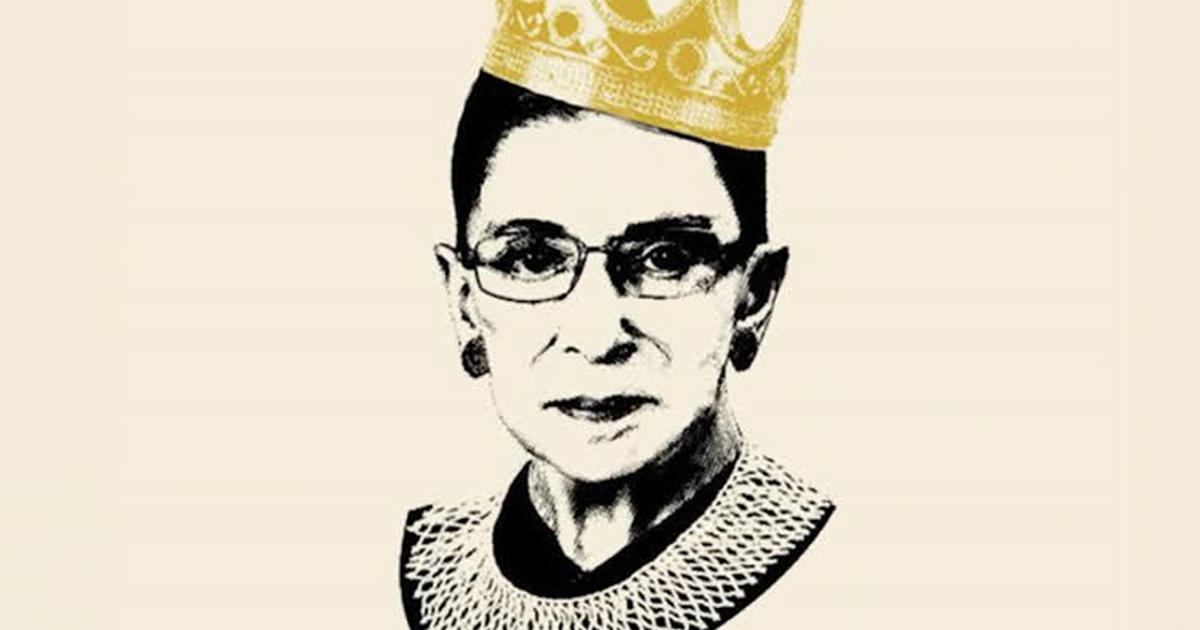The death of Ruth Bader Ginsburg, while somewhat expected, hit me harder than I would like to admit. After all, I had never met this woman and didn’t know anything about her outside of her very public persona, court decisions, and dissents. But as I unpacked why I was so sad about this woman leaving this Earth, I realized that she had a profound effect on my leadership style and my career. I would even say that she affected me so much, that she (through my thoughts and opinions) had a hand in how we shaped the People Centric and built many of our products and services. And for that reason, I thought I would share some leadership tips that were wholly influenced by Justice Ginsburg.
Critics are the true drivers of change, for they see that things can be better
On a few occasions, Justice Ginsburg spoke on the phrase “We the People”. She described how much those three words have changed over the years and even though the phrase remained the same, our concept of what it meant evolved.
She used the words that our founding fathers wrote to show how far America has come as a nation and while encouraging it to be better still.
This was a lesson for me on honoring the things that we had done in the past, even celebrating them, while also being willing to change things and evolve. I started at People Centric when the company was brand new. And years later, many of the things I worked to build in the beginning were being criticized, scrutinized, and critiqued by those who were not there for there creation. It irritated me that the thing that I created, that I held dear, was being torn apart by people who had nothing to do with its inception. It was when I heard Ruth Bader Ginsburg talk about the change of meaning in the phrase, ‘We the People’, that I realized my critics were the true optimists: they saw what it could be and challenged it to be the best version possible.
Choose your battles, and then fight them strategically
Justice Ginsburg had an infamous marriage. She and her husband, Marty, were married for 56 years, when he passed away from cancer in 2010. She has always said that he was her biggest supporter, treated her as an equal, and she loved his cooking. People often asked her to talk about the secrets to a long marriage. She stated that, on her wedding day, her mother-in-law told her this piece of advice: Sometimes it helps to be a little deaf. While Justice Ginsburg talked about this in relation to her marriage, I believe that it works well in most relationships – including those at work. Everyone says something unkind from time to time. People speak out of frustration, anger, irritation, and fear. People have different views, different perspectives, and different abilities to express themselves.
In moments where I hear things that make my emotions flair up, I take a minute to reflect on them and decide if maybe this is a moment to just be deaf. As a young, female, slightly hot-headed executive, I have had many moments in which this advice resonated in my head. I think there is a time and a place to address frustrations, slights, miscommunications, and someone else’s intent towards you. To me, this is more about choosing the battles you want to fight and being strategic about how you fight them, and less about ignoring things you don’t want to hear.
A change in language is a change in consciousness
Justice Ginsburg’s clerks and secretaries are quick to point out how the justice would pour over her writings and presentations many times and edit single words or phrases to become more concise. She knew that words carry different meanings for each person reading them, so she did everything she could to ensure radical clarity.
I am a stickler when it comes to words: I rephrase processes, I edit multiple times, ask others to say things in a different way, and almost never speak unless I truly feel that my speaking will add some insight to the conversation. I am deliberate with the words that I use and I challenge those around me to be as well. I listen intently to the words that come from people to determine how we enact change. Our words hold power that often goes unrecognized. For example, when I hear one department refer to another department as “they”, I know we need to remove the silo and build a bridge for the departments to start referring to one another as “we”. Once that change in language happens, I know that the people are thinking of themselves as a team who all works towards the same goals.
A change in language may seem small, but it is a change in consciousness and behavior that comes with the change in language that is powerful.
Build relevance to create change
Ruth Bader Ginsburg was seen as an activist at the end of her life, someone who fought for change and reform. And many would argue that she was, but she wasn’t blatant about it. She wasn’t someone who rallied others to join her, she didn’t shout or tweet feverishly about her cause. Ginsburg often tells a story about how she hid her own pregnancy in an effort to avoid being fired – and she didn’t fight the system, she accepted it for what it was. She said that she knew a group of male lawmakers would not understand the injustice of that situation, and so she worked to take on cases that showed gender inequity – for males. She decided to be strategic in the way that she approached change. And she knew that small wins have a ripple effect and create change in bigger ways as time goes on.
As someone who works on change management, I think this approach was brilliant. RBG worked to make the change relevant and important to the people who she needed to accept the change (in her case it was males for gender equality). At work that could be other leaders, peers, or customers, but change needs to be relevant to happen. People have to know how the change impacts them and why it is important to them before they will actually make a change.
The passing of Ruth Bader Ginsburg allowed me to take a moment and reflect on the things that I learned from afar from her. I think it is important to understand who influences us as leaders and appreciate those lessons. But leadership lessons don’t have to come from the highest court justices, or from billionaire business moguls, good leaders find people that inspire them and learn from them often! And I suppose the most appropriate way to wrap up this blog post about leadership is a quote about leadership from the inspiration herself, “Fight for the things you care about, but do it in a way that others will want to join you.”





